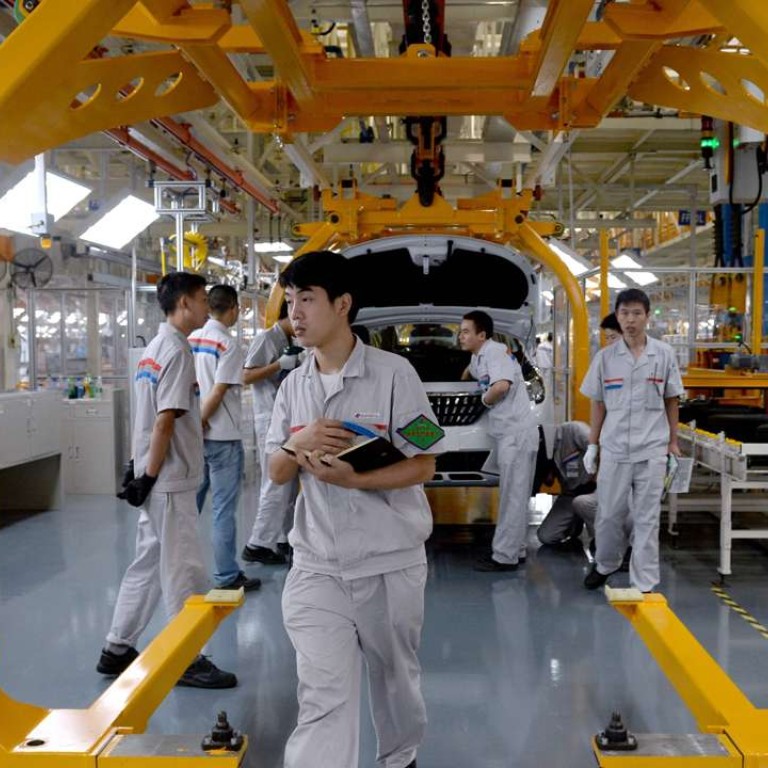
Update | Xi chairs Politburo meeting on economy, sends hawkish signal on inflation
Top of the agenda at Friday’s meeting was to “curb asset bubbles and safeguard against economic and financial risks,” while stressing the need to adopt proactive fiscal policy and prudent monetary policy
China’s president Xi Jinping, a day after being bestowed the authority as the Communist Party’s “core” leader, chaired a meeting of the party’s political bureau on economic matters, signalling the importance he’s placed on tackling the country’s runaway lending and asset prices.
Top of the agenda during the Friday meeting was the need to “curb asset bubbles and safeguard against economic and financial risks,” while stressing the need to adopt proactive fiscal policy and prudent monetary policy, according to China’s state media.
The timing and the agenda of the Politburo meeting were particularly significant, coming fresh on the heels of Xi’s elevation, said Minsheng Securities’ analyst Yan Qing.
“There are usually only three Politburo meetings on economic matters and policies every year, in April, late July and early December,” Yan said. To have Xi chair a meeting at this time has “special significance,” he said.
Also important was how the Politburo stated that the prevention of asset bubbles was to become a goal of monetary policy, according to a Sunday research note by Goldman Sachs.
The meeting has sent a “less dovish” signal to financial markets on curbing inflation, which “may help to explain the visible rise in interbank interest rate over the past 10 days,” Goldman said.
China’s benchmark seven-day repo rates rose to record 2.6624 per cent on Thursday, 4.73 basis points higher than the closing average in the previous week.
If short-term interbank rates stay at the current level, the October average will be the highest monthly level over the past 12 months, Goldman said.
Property prices have been soaring among China’s biggest metropolitan areas, as easy loans by loosely regulated financial institutions have lured speculators to seek higher returns in fixed assets.
Property prices surged in September at the highest annual pace in more than seven years, according to Bloomberg data. As many as 63 major cities reported price increases for new homes in September, compared with 37 cities a year earlier.
China’s provincial and city governments took action in October, with more than 20 of them slapping on lending restrictions, and requiring second-time buyers to put down more money, to deter speculators from owning multiple properties.
The combination of administrative measures appeared to work.
By late October, an unprecedented mid-month release of property data showed the price growth index declining on average by 2.5 percentage points across 15 first- and second-tier cities.
Property prices fell in the first half of October in Shenzhen and Chengdu by 0.3 per cent and 0.1 per cent respectively, though still rose by over 4 per cent in cities such as Zhengzhou and Wuxi.
To curb asset inflation, the People’s Bank of China may set new rules to regulate the country’s wealth management products, which have been blamed for fuelling runaway credits.
The central bank may instruct commercial banks to incorporate their off-balance-sheet wealth management products into the Macro Prudential Assessment (MPA) system, as a way to improve oversight of shadow lending, the Caixin financial website reported last week, citing sources at the central bank.
All these measures amount to tweaks that could cool the market and stem the acceleration in prices, without requiring a dramatic shift in monetary policy, analysts said.
“Concerns about a repeat of the 2013 liquidity crunch are certainly overdone because that was a one-off policy misfire, which we think is extremely unlikely to be repeated,” Goldman said in its research.
The Chinese government also downplayed the country’s economic growth target, instead emphasising a programme to restructure the composition of the economy, forcing inefficient and unproductive industries to consolidate, Yan said, citing the wording of the post-meeting statement.
“One subtle difference is this meeting was the statement that fiscal support will be stepped up for poor regions, while at the July meeting it discussed how fiscal spending should guide social capital to invest in infrastructure and the real economy,” Goldman said.
ta.
T

